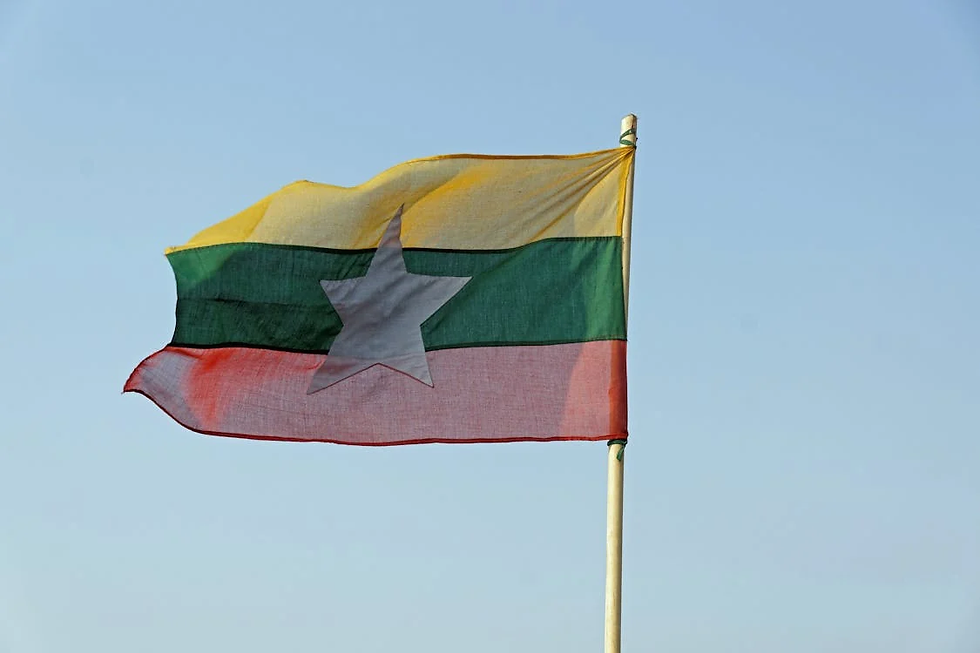Burmese Journalists Face Deportation from Thailand
- Hannah McGaw

- May 19, 2021
- 3 min read
Updated: Dec 23, 2024
Three Myanmar journalists and two activists have been arrested in Thailand after fleeing across the border. The group was detained during a "random search", according to the local press.

Myanmar has a stretch of border, more than 2,000km (1,200 miles) long, that crosses into Thailand, making the country a natural haven for those fleeing from the country’s escalating, oppressive violence. According to the BBC, dissident media organisations have based themselves in Thailand during long periods of military rule in the past, and, since the coup in February, dozens of journalists and activists have crossed the border in order to escape arrest.
After declaring that the country was in a state of emergency due to rising public tensions, the military seized ultimate power on the 1st of February, and has since arrested dozens of journalists. The junta (the governing body) banned the DVB (Democratic Voice of Burma) and several other media outlets in March, in an attempt to suppress the coverage of protests against its rule. However, despite the risks, journalists have continued their work whilst in hiding, documenting the military’s brutal crackdowns upon freedom of speech - in which 781 people, including 52 children, have so far been killed. According to the Assistance Association for Political Prisoners in Burma, 4,916 people have been arrested by the military since February. The majority remain in detention centres, often in various unknown locations. There have been widespread reports that those currently being held by the military are enduring torture. On Monday 10th May, it was reported that Khet Thi, a poet who opposed the ruling junta, had died whilst detained; his body was returned to his family, with his organs removed.
Myanmar's military justified the February coup by claiming there had been widespread fraud during the general election late last year, which had returned elected leader Aung San Suu Kyi and her National League for Democracy party (NLD) to power.
According to The Foreign Correspondents' Club of Thailand, more than 70 journalists are among the thousands of people who have been arrested in Myanmar since the February coup. The Assistance Association for Political Prisoners monitoring group claims that fifty journalists are still in detention, and half of those have been prosecuted. According to the BBC, several foreign journalists have also been arrested.
Three journalists and two activists from Myanmar have been arrested for illegal entry and, according to the reporters’ employers, could face possible deportation. The broadcaster DVB has said that their lives would be "in serious danger" if they were forced back to Myanmar. The group, who have yet to be named by Thai authorities, were arrested by the police in the city of Chiang Mai on the 10th of May. According to The Committee To Protect Journalists, ‘all three [journalists] had covered anti-coup demonstrations that have been taking place in Myanmar since the military’s overthrowing of the government.
The head of police in Thailand’s San Sai district told Reuters that the five Myanmar citizens had been arrested for entering the country illegally, and that the case would be brought to court on Tuesday 12th May. Following this, he claimed that they would be deported in accordance with the law, but then added that, because of the preventative measures with the aim of ceasing the spreading of coronavirus, they would be held in detention for a fortnight before being handed to immigration authorities. The trial was postponed until the 18th of May, although the results of the court proceedings are yet to be announced.
If found guilty, they are likely to be deported back to Myanmar, where they say their lives would be in danger from a military that is continuing to gain momentum.
Shawn Crispin, the senior South-East Asia representative for The Committee to Protect Journalists, has urged Thailand to offer sanctuary to the group. "Myanmar’s military regime has repeatedly abused and detained journalists," he said, "and Thai authorities should not force these members of the press to face potentially severe retaliation for their work."
Similarly, in a statement, the executive director of DVB, Aye Chan Naing, appealed to the UN Higher Commissioner for Refugees to help the five Myanmar citizens.
Human Rights Watch has also called on Thailand to release the group and not to send them back to Myanmar: "They will face certain arrest and persecution." Brad Adams, the organisation’s director of the Asia Division said in a statement.

_edited.png)

Comments